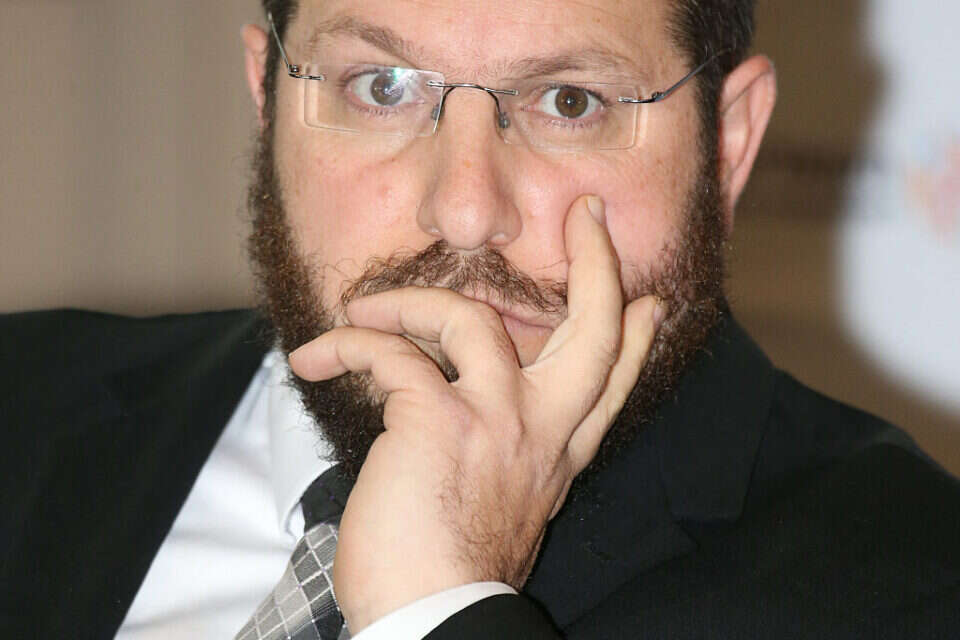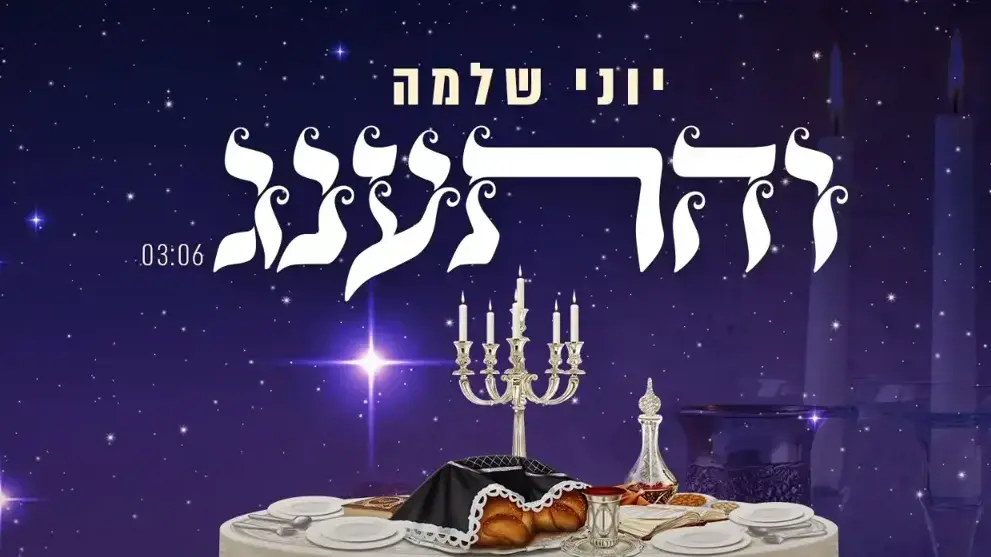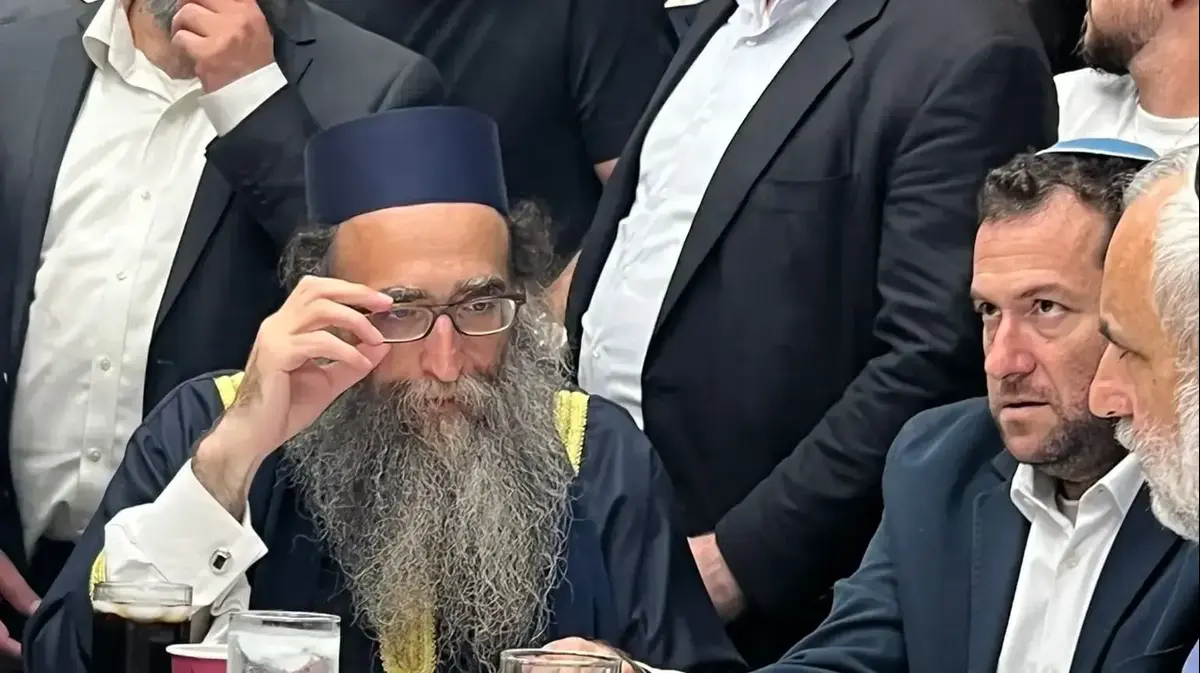"How would I describe myself?" Ezra Furman asks dryly, ripping a corner from her pizza triangle at a store in Somerville, Massachusetts.
"I try to avoid definitions."
There is definitely something to describe.
She is 34 years old, an acclaimed indie-rock musician, an observant Jew, a transgender, a mother, and - since this fall - she is studying to be a rabbi.
"I would say I compose trans-female praises," she details after a silence.
In a personal encounter she is deceptively gentle, despite her wild stage presence, wearing a soft pink shirt and mask that reads "Vote!".
"I'm a trans woman, I think 'non-binary' is also accurate. And I'm not sure how these things that do not fit together can exist together, but I just feel they are accurate."
Foreman explores this identity in her melodies and lyrics throughout her career, which also does not allow for cataloging.
Her discography contains a mix of glam-rock with grunge and duo-hop, bouncy indie-pop with overflowing sweet ballads and punk songs screaming about poverty and the climate crisis.
She appeared on stages wearing a tassel under her dress and produced an album on queer love, which is also a midrash on the Book of Exodus.
What is perhaps most significant in her career as a musician performing in front of an audience, is that she does not travel or perform on Saturdays.
"I give up professional opportunities all the time," she says.
"I have to believe it will be okay. I developed the willpower to ask for all the things I need, even though I was told they could not go together."
For many of her fans, especially those who are queer or undecided about their identity, Foreman provides a rare public example of how one can be religious and also queer, transgender and also a parent.
After confessing last April that she was a trans-female mother, there was an outburst of joy across the social network.
"You've always been a light in the dark," read one of the Instagram comments, "and the fact that you share it with us affects just as you intended: proof that life can be beautiful and fulfilling
and that
you
too
can be yourself."
Another comment added: "Very happy for you and your family, and thank you for sharing it - it's so important that they see you, appreciate you and inspire others."
But not everything was positive: her manager received a pile of hate mail that he hid from her.
"He said, 'I'll just tell you if there's anything important,'" Foreman sighs.
"My goal was to show my life to people, who might benefit from a model of trans parenting in real life," she explains with some sadness, "and then I found out that transphobic people charge you a price for it. But I think it's a price worth paying, and to some extent I can pay. If it's worth it. "
She and the person with whom she shares her life, and whom she does not want to talk about, are accustomed to "quirphobia," as she puts it, "openly and structurally."
But she has hope, perhaps more than she had when she spoke to JTA recently in 2016, when she talked about her difficulty in finding a Jewish space to pray in comfort.
"I see a flicker of a future where everyone I meet will not care about it, and I will never have to explain myself. And not just me - that no one will have to explain what their gender, sexuality or family structure is," she declared.
The last few years have been busy for Furman, who worked for years in relative anonymity in the world of folk-rock with the band Ezra Furman and the Harpoons, before gaining more resonance as a solo musician on a series of five albums, the first of which came out in 2012.
Records such as "Perpetual Motion People" from 2015 and "Transangelic Exodus" from 2018 earned her applause from all directions, and in 2019 she wrote the music for Netflix's "Sex Education" program, which became a hit.
Foreman at Davis Square in Somerville, Massachusetts, Ella Rockert
"I could not be Jewish and queer"
In addition to being a new mother and professional musician, Foreman is starting to study this fall at Hebrew College in nearby Newton.
She is also working on a podcast on Jewish holidays, called "2 Queers, 4 Difficulties."
Foreman intends to study only one semester at the rabbinical seminary at this time, and in 2022 she will take a leave of absence from school: "And from this it can be deduced that I will be engaged in some musical activity at this time," she updates.
For Forman, the rabbinical seminary is the pinnacle of her entire life dedicated to thoughts about God - but the creation of the music, which she calls spiritual, helped her get there.
"Someone I know asked me if I thought studying the affair for my bar mitzvah influenced me to become a musician, and it's totally like that," she reveals. "That I think speaks to God, who thinks of God. To create music is a spiritual act."
Did raising a child make you even more connected to your Jewish identity?
"That's a good question. I didn't think about it."
Meanwhile, the two-year-old boy, about whom she speaks in many languages so as not to infringe on his privacy, is surrounded by Jewish customs at home.
"I sing 'Hear Israel' before I put them to sleep every night so they know the word 'hear', they kiss the mezuzah when we go out of their bedroom door, and when it comes to parenting, I create the world for this person, and my choices Create their environment, "she says.
Lately, she says, she has been thinking a lot about her childhood - her experiences in the Jewish school and her entry into the music scene as a teenager, which is mainly non-religious.
"Wherever I could be queer, I could not be Jewish as I wanted, and wherever I could be Jewish, I could not be queer. I had no one to learn from that it was possible to be two things together."
And now?
"For me, when I became an adult, it meant I could produce the life I wanted, and the fact that others think these things go wrong with each other does not stop me from doing anything. I mean, it might lead to stigma and hatred towards me, harassment, whatever. But. "I can still have trans people, Judaism, parenting, art and music. I have a lot of flaws," she adds, "but I'm also happy with what I am."
As a graduate of Tufts University, this is her second time living in Somerville as a student, and she's excited about starting school: "It's going to be complicated for both my music life and my school life ... I told myself these two projects don't connect to each other. But I need both, so I'm going to do both."













/cloudfront-eu-central-1.images.arcpublishing.com/prisa/O7GYUERBKAOU32OVHN7ZAGYJ7Q.jpg)

